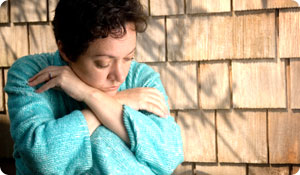
Medication
Scientists categorize the different types of depression medications based on how they affect the chemicals in your brain. Before writing a prescription, your physician will evaluate your symptoms, family history and general health conditions to select the most appropriate medication.
It may take eight weeks or more before you experience the full benefits of your medication. Don't be discouraged if the first (or second or third) medication is not effective. Sometimes it takes a few tries before you find the medication that works best for you.
The most common side effects of antidepressant medications include nausea, increased appetite, weight gain, sexual dysfunction, fatigue, insomnia, dry mouth, blurred vision, constipation, dizziness and agitation or restlessness. Adolescents and young adults should be especially attentive to potential side effects. They may experience an increase in suicidal thoughts and behaviors with anti-depressant medications.
Psychotherapy
Psychotherapy involves talking with a trained mental health professional who can help you uncover the causes of your depression so you understand it, find ways to change your behaviors and learn valuable coping skills. Be sure to find a therapist you trust and with whom you develop a rapport. If you're not comfortable with a particular therapist, don't hesitate to find someone new.
The length of therapy varies. Discuss expected duration with your therapist at the beginning of therapy so you know what to expect. Be aware that sometimes you'll feel worse during therapy before you feel better.
Electroconvulsive Therapy (ECT)
ECT applies electrical currents to the brain to treat depression. This procedure has come a long way since One Flew Over the Cuckoo's Nest painted a frightening picture of shock therapy. ECT can be very effective for treating depression in patients who don't respond to medications or who are at high risk of suicide.
Lifestyle Changes
Making a few lifestyle changes improves how you feel and usually increases the effectiveness of depression treatments.
Mental health experts recommend you:
- Get regular exercise
- Eat a diet rich in fresh fruits, vegetables, whole grains and healthy fats and oils
- Get enough sleep
- Reduce stress
- Seek social support
It may take time to find the right depression treatment for you, but you should feel encouraged that help is available and you can feel better.
Sources
http://www.mayoclinic.com/health/depression/DS00175/DSECTION=treatments-and-drugs
http://www.depression-guide.com/
http://www.mayoclinic.org/depression/treatment.html
http://www.helpguide.org/mental/medications_depression.htm
http://www.helpguide.org/mental/treatment_strategies_depression.htm





